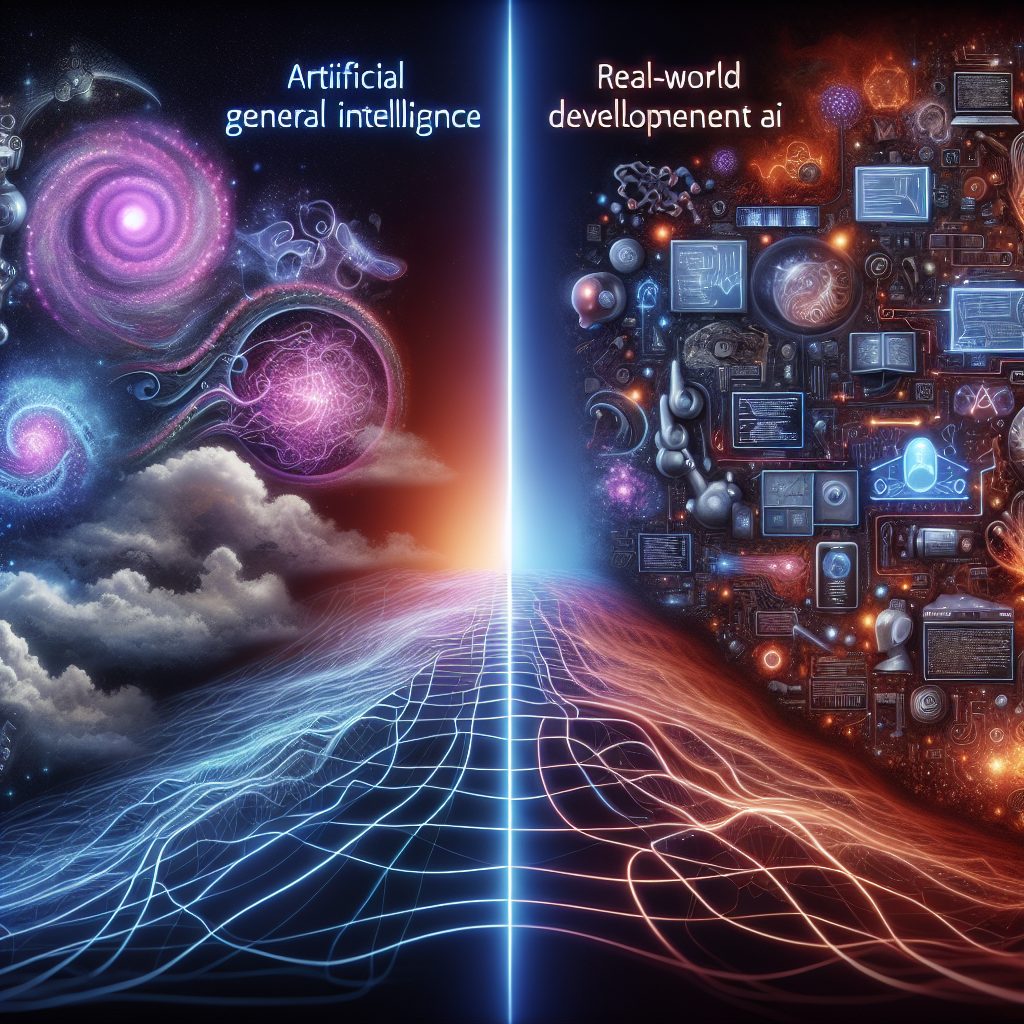Artificial General Intelligence (AGI) has long been a staple of science fiction, captivating audiences with its potential to revolutionize society, or alternatively, bring about its downfall. From the benevolent and wise AI mentors of Asimov’s “I, Robot” to the malevolent and all-powerful Skynet of the “Terminator” series, AGI has been portrayed in a multitude of ways in popular culture. However, separating fact from fiction in the development of AGI is crucial in understanding its potential impact on our world.
In this article, we will explore the current state of AGI development, the challenges that researchers face in creating truly intelligent machines, and the ethical considerations that must be taken into account. We will also address common misconceptions about AGI and provide a FAQ section to answer some of the most pressing questions surrounding this cutting-edge technology.
The State of AGI Development
Artificial Intelligence (AI) has made significant strides in recent years, with breakthroughs in machine learning and deep learning algorithms allowing computers to perform tasks that were once thought to be exclusive to human intelligence. However, the development of AGI, which aims to create machines that can perform any intellectual task that a human can, remains a distant goal.
One of the main challenges in creating AGI is simulating human-level general intelligence, which encompasses a wide range of cognitive abilities such as reasoning, problem-solving, and creativity. While AI systems excel at specific tasks, such as image recognition or natural language processing, they lack the ability to generalize their knowledge and adapt to new situations in the same way that humans can.
Another hurdle in AGI development is achieving a level of consciousness or self-awareness in machines. While some researchers believe that consciousness is an emergent property of complex systems, others argue that it is a fundamentally different phenomenon that cannot be replicated in machines. The debate over the nature of consciousness in AI is ongoing, with no consensus on how to approach this complex issue.
Ethical Considerations in AGI Development
As AI technology continues to advance, ethical considerations become increasingly important in ensuring that the benefits of AGI are maximized while minimizing potential risks. One of the main concerns surrounding AGI is the potential for job displacement, as intelligent machines could automate a wide range of tasks currently performed by humans. This could lead to widespread unemployment and economic disruption, particularly in industries that rely heavily on manual labor.
Another ethical issue in AGI development is the potential for bias and discrimination in AI systems. Machine learning algorithms are trained on large datasets, which can contain biases inherent in the data. This can lead to discriminatory outcomes, such as facial recognition systems that are less accurate for people of color or sentencing algorithms that disproportionately target minority groups. Addressing bias in AI systems is crucial in ensuring that AGI is developed in a fair and equitable manner.
Common Misconceptions about AGI
There are several common misconceptions about AGI that have been perpetuated in popular culture and media. One of the most persistent myths is the idea of a “singularity,” a point in the future where AI surpasses human intelligence and becomes self-aware. While this scenario makes for compelling storytelling, the reality is that AGI development is a gradual and incremental process that is unlikely to result in a sudden leap in intelligence.
Another misconception about AGI is the idea that machines will eventually become more intelligent than humans and potentially pose a threat to humanity. This fear of a “robot uprising” has been popularized in movies and books, but most AI researchers agree that the likelihood of AGI becoming hostile towards humans is low. The focus of AGI development is on creating intelligent machines that can assist and augment human capabilities, rather than replace them entirely.
FAQs about AGI
Q: Will AGI surpass human intelligence in the near future?
A: While AI technology is advancing rapidly, achieving human-level general intelligence remains a distant goal. Researchers are still grappling with the fundamental challenges of simulating human cognition and consciousness in machines.
Q: What are the ethical considerations in AGI development?
A: Ethical considerations in AGI development include job displacement, bias in AI systems, and the potential for misuse of intelligent machines. Addressing these issues is crucial in ensuring that AGI is developed in a responsible and ethical manner.
Q: How can we ensure that AGI benefits society?
A: To ensure that AGI benefits society, it is important to involve a diverse range of stakeholders in the development process, including ethicists, policymakers, and members of the public. Transparency and accountability are also essential in mitigating potential risks.
Q: What are the potential risks of AGI?
A: The potential risks of AGI include job displacement, bias in AI systems, and the misuse of intelligent machines for malicious purposes. Addressing these risks requires careful consideration of the ethical implications of AGI development.
In conclusion, AGI has the potential to revolutionize society in ways that we can only begin to imagine. By separating fact from fiction in AI development, we can better understand the challenges and opportunities that AGI presents. By addressing ethical considerations and dispelling common misconceptions, we can ensure that AGI is developed in a responsible and beneficial manner. As we continue to push the boundaries of AI technology, it is crucial that we approach the development of AGI with caution, foresight, and a commitment to the common good.

